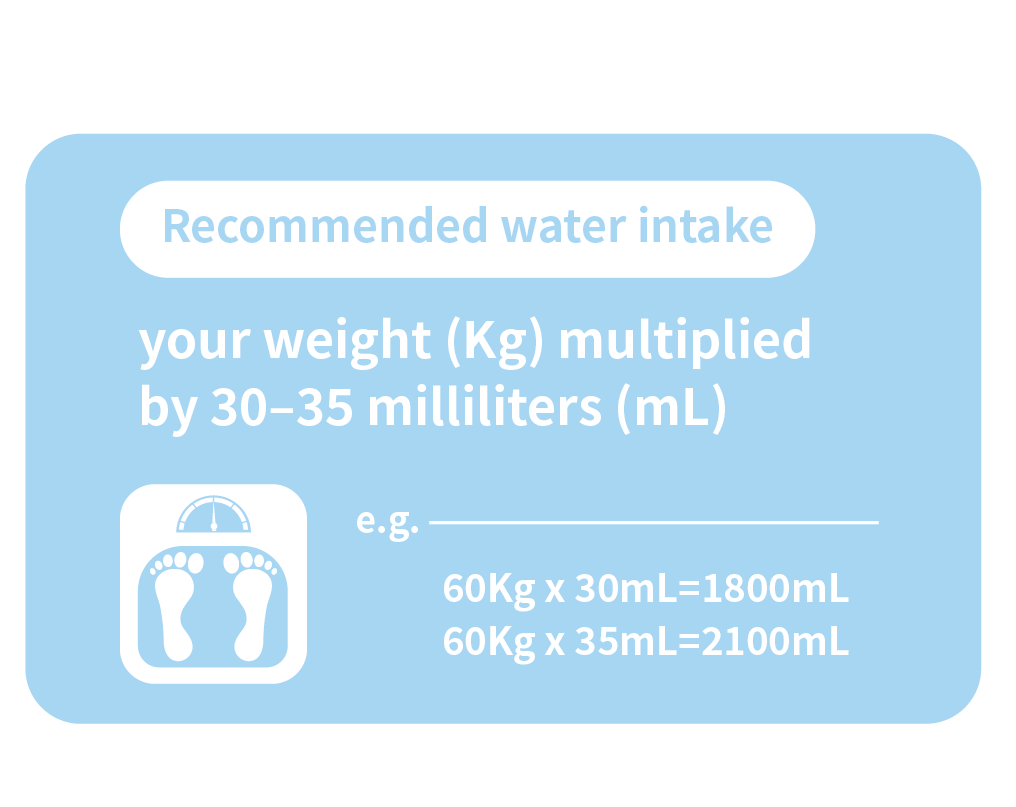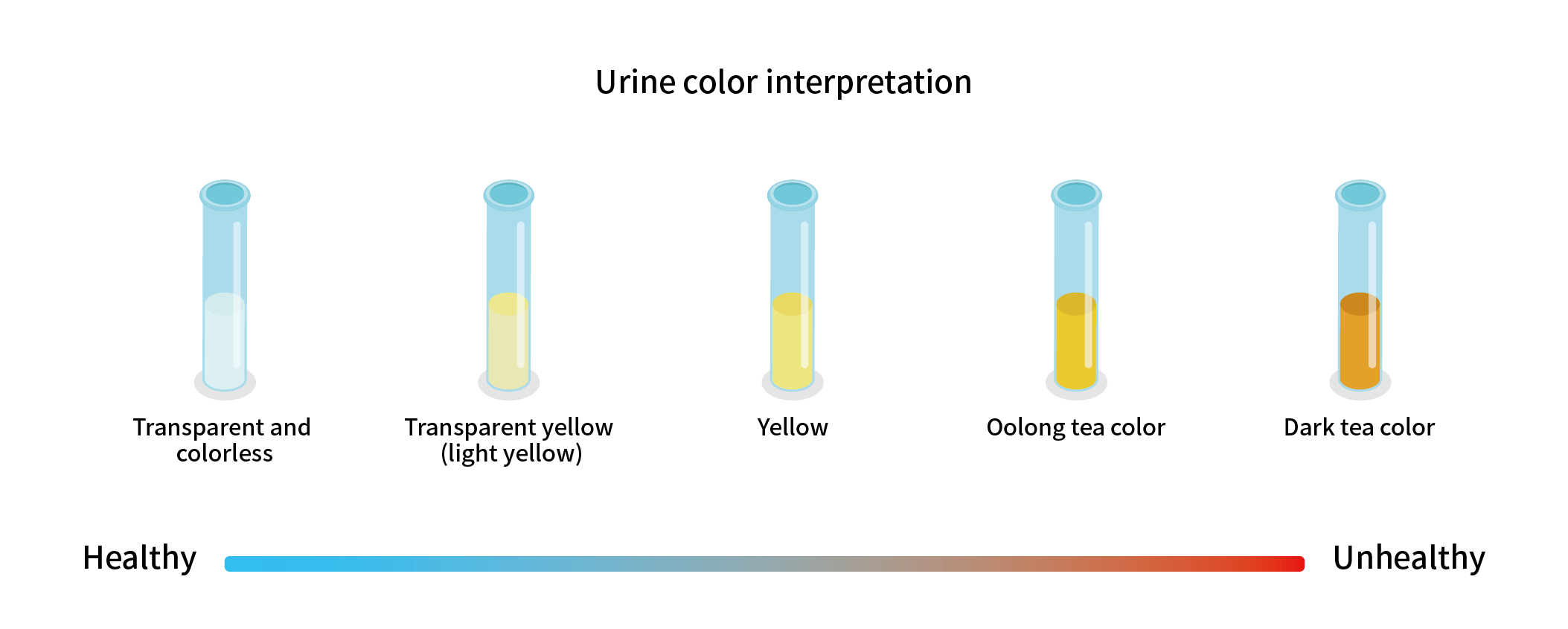
We’ve all heard the slogan, ‘Drink more water when you’re free, drink water freely!’ But did you know? The amount of water intake varies depending on a person’s age, body type, gender, weight, physical condition, work nature, and seasonal changes. Most importantly, kidney function or the presence of other comorbidities can also influence the amount of water needed. How much water should you drink? Not everyone needs 2000 mL!
For healthy adults, the recommended daily water intake is approximately “your weight (Kg) multiplied by 30–35 milliliters (mL)”.

For example: If your weight is 60 Kg, your recommended daily water intake would be between 60 Kg × 30 mL = 1800 mL and 60 Kg × 35 mL = 2100 mL.
Special reminder: If you have chronic kidney disease, heart failure, or are prone to edema, please follow your doctor’s instructions to control your water intake to avoid overburdening your body by drinking too much water.
Have you drunk enough water today? Learn to interpret urine color.
Under normal circumstances, urine is usually transparent, ranging in color from pale yellow to yellow-brown. Urine color can vary due to the influence of food, medication, vitamins, and diseases. Therefore, urine serves as a basic and simple indicator of whether the body needs hydration or if its condition is good, allowing people to self-check their health daily.

- Transparent and colorless: Indicates the body may have excessive water and does not need additional hydration.
- Transparent yellow (light yellow): Indicates the body has sufficient water and can hydrate normally.
- Yellow: May suggest that water hasn’t been replenished for some time or there has been continuous sweating, requiring ongoing hydration.
- Oolong tea color: Indicates the body may be dehydrated and needs immediate hydration.
- Dark tea color: Suggests 1–2 days without water intake, and drinking water at this point may be too slow for gastrointestinal absorption. Seek medical assistance.
Five principles for drinking water correctly:

- Drink small amounts multiple times; avoid chugging large amounts at once.
- Drink water upon waking to help start metabolism.
- Avoid sugary drinks to reduce kidney burden.
- Replenish water and electrolytes after exercise or sweating.
- Kidney disease patients should follow medical advice to control water intake.
Proper water intake helps maintain basic metabolic functions, keeps the cardiovascular system stable and functioning normally, and promotes detoxification within the body. If too little is consumed, the kidneys can adjust body water levels to optimal conditions by excreting more concentrated urine.
References:
[1]Hydration and Kidney Health: Nephrologist’s Guide to Smart Water Intake in Summer
[2]Ministry of Health and Welfare – Stay Cool and Hydrated Smartly
